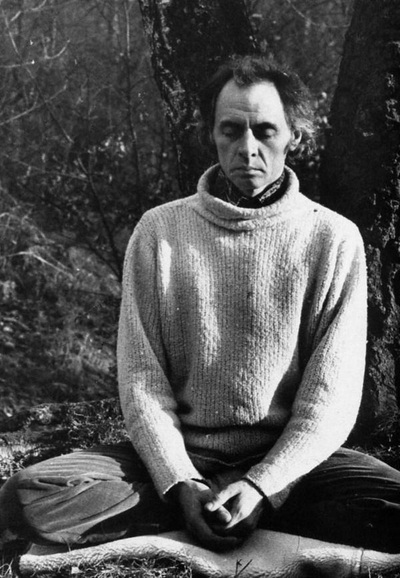50 YA – RD Laing / Thoughts on climate change
Mind in a cul-de-sac: Laing
If one considers the family in its genealogical image as a tree, today lumberjacks are out. The tree, by various allegations, is blighted and corrupt, the leaves malnourished while society still praises its luxuriance. In the nineteen-fifties Dr. Kinsey showed statistically that monogamy was a stale pretence; in the ‘seventies Women’s Liberation proclaims it to be a cage. The most trenchant attacks on the family, however, have come from the psychiatrist Dr. Ronald Laing. In a series of writings on the condition of schizophrenia, Laing has shown family groups as circles bent on mental violence, selecting this and that member as victims for destruction. Only the mad are sane, says Laing.

A psychiatric theory may not, in itself, be thought to matter much outside the world of attempted therapy where—as with more palpable physical disorders—¬the patients are patched to be sent back to the environment where their troubles grew. But Laing’s has been popularised as material for social and political dissenters. Contributing to the New Left Review, Peace News and New Society automatically connected him with the cultural Left; in 1967 he was one of the speakers in the “Dialectics of Liberation” seminar at the Round House, London, with Marcuse, Stokely Carmichael and others. The film Family Life is a representation of his view of everyday relationships: an onslaught against the stupidity, unfairness and general motivation of the conventional and a vindication of the young dubbed insane, with the implication that the latter had better run from the former as fast as they can.
It is also a representation of the nature of Laing’s popularity. The appearance of cheap editions of his books coincided with the emergence of the “underground”, the movement for dropping-out and psychedelia. (…)
In the 1965 preface to an earlier work, The Divided Self, Laing speaks of his theories as condemning not only family relationships but the social order at large, because it “represses not only ‘the instincts’, not only sexuality, but any form of transcendence”. The preface was withdrawn from the 1970 edition, and he is now reported to have retreated into mysticism.
(Socialist Standard, August 1972)
Thoughts on climate change
A few days ago, I saw a drift of Cardamine pratensis by the roadside – not pink, not violet, but an indescribable blend of them both. Known to most, and first named when our relationship with plants was much closer, as the Cuckoo flower or Lady’s smock, these flowers have never grown there before; certainly the species can be found at the same roadside location each April, but not the same flowers. Each year, new flowers appear, equally beautiful and equally fresh.
Beauty, particularly the beauty of nature, so valuable to us all and yet with no actual monetary value, is transient. Beauty, a universal feature of our natural surroundings, is disappearing gradually and inexorably. Climate breakdown caused by human activity is now a major cause of species and habitat loss. However, climate breakdown (or change) is not the only, or indeed primary, factor leading to the destruction of our environment; it is, rather, a symptom of our means of organising world society – a symptom that sits alongside pollution, warfare, homelessness, poverty and many other inexorable outcomes of a society based on profit and endless growth. We are, in fact, a species at war with ourselves and the very necessities of life itself. This is a needless war, as the system that gives rise to such outcomes can be changed; it only requires individuals to believe that it is not working and to want to change it.
I hope that, if you have read this far, you will not see these words as a pointless ‘rant’ or feel that by writing these thoughts I am in any way suggesting that the opinions you hold about climate change or the causes of climate change are invalid or wrong. I am, however, hoping that you will agree that the existing manner in which we organise society does not work and is dramatically failing to protect both us as humans and the species with which we share the planet – the only planet available to us. Yes, this is a political problem and politics is a difficult subject, but for a moment imagine that all the political parties, groups and ideas that we know were gone; there was no ‘right’ or ‘left’ but instead a new order of things that put nature and people first. No economy, simply the careful and considered organisation of the world’s resources to the mutual benefit of all. Would this not be welcomed? In my opinion, ‘left’ and ‘right’ political thinking suggests a wall at which you can only turn one way or the other, and at which there is no escape from the system – one which still puts the economy first. I want to get over the wall, look at all the wonderful things the human race can do, put beauty first and allow our children to look back with thanks that we chose a new path into the future.
It is not helpful to focus blame for climate change (or indeed all the other ills of society) on each other or individuals; yes, as individuals it is mutually beneficial to play our part, but no amount of reforms, charities or tweaking will curtail the trajectories we are experiencing. Change is needed – world change – and change is frightening, but is it more frightening than the alternative?
GLENN MORRIS
